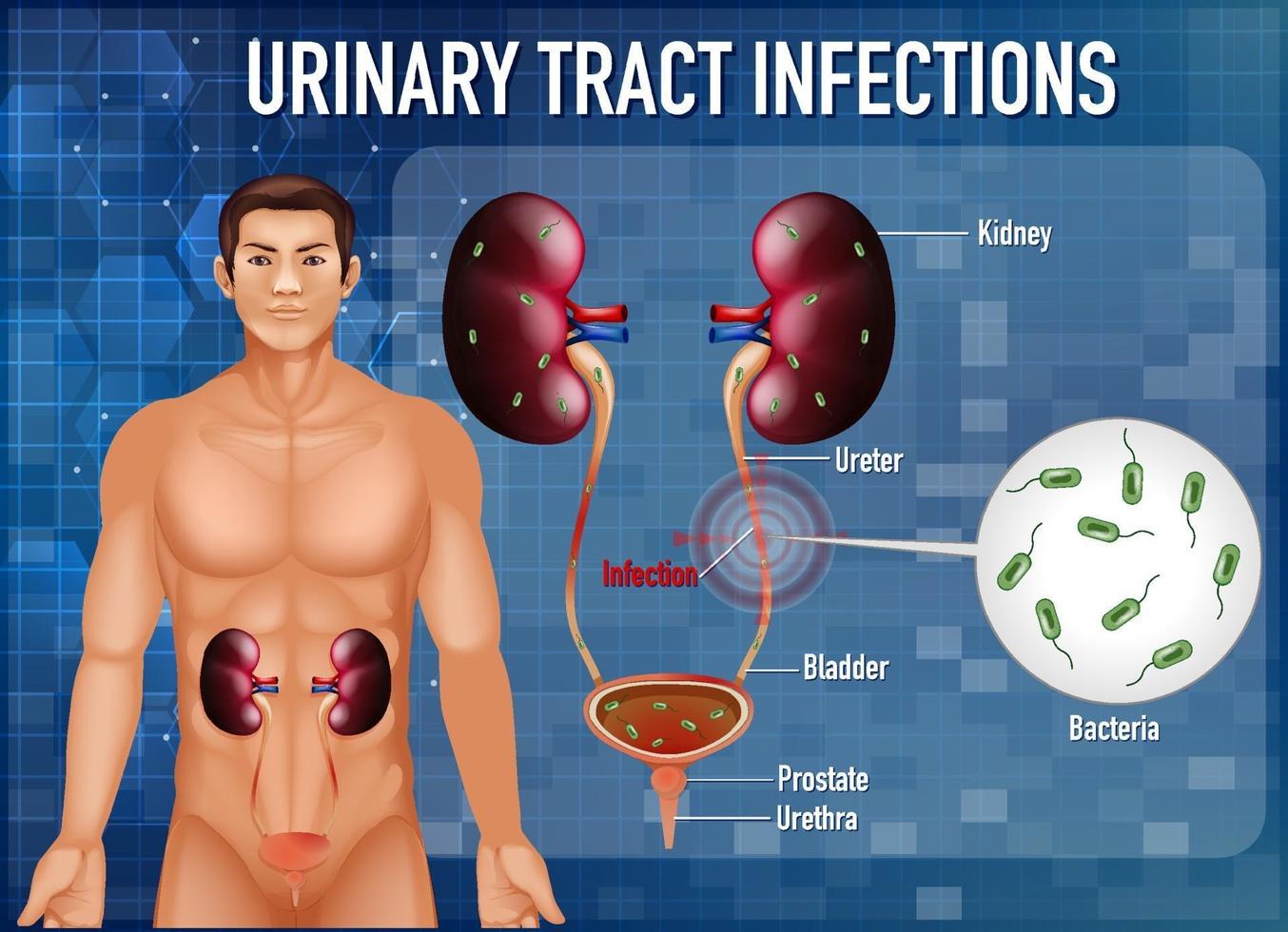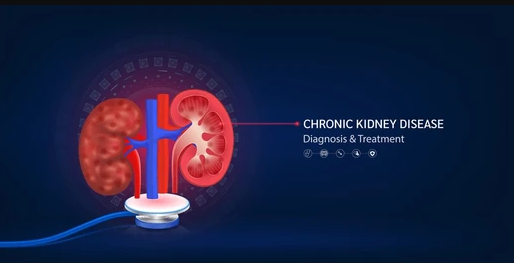What is an infection of the urinary tract (UTI)?
Any infection within the urinary system is referred to as a urinary tract infection (UTI). Most infections impact the bladder and urethra, which are parts of the lower urinary system urinary tract infection treatments recurrent Ute.
The risk of UTIs is higher in women than in males. It can be uncomfortable and unpleasant if the infection is restricted to the bladder urgent care for uti. Serious health issues may arise if a urinary tract infection (UTI) spreads to the kidneys instant uti relief.

Medical experts routinely treat urinary tract infections with antibiotics. Additionally, there are actions you may do to lower your risk of contracting a UTI in the first place.
Ureters. Urine is transported from your kidneys to your bladder through tiny tubes called ureters.
Bladder. Urine enters and exits your body through the bladder, an organ shaped like a balloon.Urethra.
Urine is transported from the bladder to the external organs through the urethra, a tube.
Urinary tract infection types-
The urinary tract is what?
Urine is produced and held in the urinary tract. That comprises of your:
kidneys. On the rear of your body, above your hips, lie the kidneys, which are little organs shaped like beans. Kidneys are found in most persons. Urine is produced when they filter waste materials and water out of your blood. Urea and creatinine are examples of common waste products.
There are various areas of your urinary system where the infection may arise. The names of each variety vary according to their geographical location.
Bladder cystitis: You may experience frequent urination. Additionally, you can experience bloody or murky urine and lower stomach pain recurrent uti.
Kidney disease called pyelonephritis (kidney inflammation) can cause fever, chills, nausea, vomiting, and side or upper back pain instant uti relief.
Urethritis: This condition can result in burning and discharge during urinating urgent care for uti.
The lining of your urinary system becomes inflamed when you have a UTI. The following issues can be brought on by inflammation:
- Discomfort in the lower back, side, or pelvis.
- Pressure in your pelvis’ lower region.
- Pee seepage.
- Frequently you need to urinate.
- Urgent leakage of urine.
- Urine with blood in it (hematuria).
Other signs of a urinary tract infection could be:
- Penis pain.
- Having a severe case of tiredness.
- High temperature.
- Feels cold.
- vomiting and nauseous.
- Disorientation or mental alterations.
Reasons-
The most common cause of urinary tract infections (UTIs) is the passage of bacteria from the urethra into the bladder. Bacteria are intended to be present in the urinary system. However, defenses don’t always work. In such a scenario, the bacteria may become established and develop into a serious urinary tract infection urinary tract infection treatments.
The bladder and urethra are affected by the most common urinary tract infections, which primarily affect women’s bladder infection.
- Infection of the bladder. Escherichia coli (E. coli) is typically the cause of this kind of UTI. One kind of bacteria that is frequently discovered in the gastrointestinal (GI) tract is E. coli. However, other microorganisms can also be the source of urinary tract infection treatments recurrent Ute.
- Bladder infections. can also be caused by sex, while sexual activity is not a need for their development. Because of their anatomy, all women are susceptible to bladder infections. Women’s urethras are located close to the anus. Additionally, the bladder and the urethral entrance are near. This facilitates the entry of bacteria surrounding the anus into the urethra and subsequent passage to the bladder instant uti relief.
- Infection of the urethra. The transmission of GI bacteria from the anus to the urethra can result in this kind of UTI. Sexually transmitted infections can also result in urethral infections. These consist of mycoplasma, gonorrhea, chlamydia, and herpes. The female urethra’s proximity to the vagina allows for this to occur bladder infection.
Signs and symptoms-
Not all UTIs result in symptoms. When they do, they could consist of:
- A persistent, intense need to urinate.
- Burning feeling when passing pee.
- Urinating frequently and passing tiny volumes of pee.
- Cloudy-looking urine.
- Red, bright pink, or cola-colored pee are indications that there is blood in the urine.
- Urine with a strong fragrance.
- Women who experience pelvic discomfort, particularly in the middle of the pelvis and in the vicinity of the pubic bone.
- UTIs in older persons can go unnoticed or misdiagnosed as other illnesses.
In order to detect a urinary tract infection, what tests will be performed?
To identify a UTI, a medical professional may request the following tests:
Urine culture. You will pee into a designated cup, and lab personnel will examine your specimen to detect the presence of any bacteria. Urine cultures are crucial since they assist your doctor in deciding on the best course of action. A healthcare professional may prescribe the following tests to check your urinary tract for an illness or injury if your infection doesn’t go away after treatment urgent care for Ute.
Ultrasonic. An ultrasound is a diagnostic procedure that allows your physician to view your interior organs. There is no need for preparation and an ultrasonography is painless. CT scan instant uti relief. An additional imaging test is a CT scan. This kind of X-ray creates three-dimensional images of your insides by taking cross-sectional pictures of your body, or slices. An X-ray is not as accurate as a CT scan urinary tract infection treatments recurrent Ute.
Handling and Medical Care-
If you have a UTI, your healthcare provider will ascertain this by:
- Inquiring about symptoms
- Carrying out a physical examination
Pee tests can be ordered if necessary. UTIs are caused by bacteria, which medications treat. But antibiotics can have negative effects whenever you take them. Rash, lightheadedness, nausea, diarrhea, and yeast infections are examples of side effects. Antibiotic-resistant infections and C. Diff infections, which induce diarrhea and can cause fatal colon damage, are examples of more serious adverse effects. If you have any negative effects while taking your antibiotic.
UTI symptoms can also be confused with those of other conditions, such as STDs. Your healthcare provider can identify the appropriate course of action after determining if your symptoms are due to a UTI or another condition bladder infection.
Certain individuals are more susceptible to getting a UTI. Because women’s urethras are shorter and located closer to the anus, UTIs are more common in this population. Bacteria are able to enter the urinary tract more easily as a result.
In women, UTIs are common. In their lifetime, many women get many UTIs.
Actors at risk-
Particularly for women, risk factors for UTIs include:
- Anatomy of women. Compared to men, women’s urethras are shorter. Bacteria must travel less distance to reach the bladder as a result of urgent care for uti.
- Intercourse. The risk of UTIs appears to increase with sexual activity. The danger is also increased by a new sexual partner.
- Certain birth control methods. Birth control with diaphragms can raise the risk of urinary tract infections. Utilizing spermicides could raise the danger as well as instant uti relief.
- Urinary tract issues. Urinary tract issues can cause newborns to experience difficulties urinating. A UTI may result from an accumulation of urine in the urethra urinary tract infection treatments.
- Obstructions in the urinary system. Urine might become stuck in the bladder due to kidney stones or an enlarged prostate. There is a greater chance of UTI as a result.
- A weakened defense mechanism. Diseases like diabetes can interfere with the immune system, which is the body’s line of defense against pathogens. The chance of UTIs may rise as a result.
- A weakened defense mechanism. Diseases like diabetes can interfere with the immune system, which is the body’s line of defense against pathogens. The chance of UTIs may rise as a result.
- Catheter use. Individuals who are unable to urinate independently need to utilize a catheter, which is a tube. The risk of UTI is increased by using a catheter. Hospital patients are able to utilize catheters. Those who are paralyzed or have neurological conditions that make it difficult to control urine can also use them for bladder infection.
- recent experience with urination. A urinary tract infection (UTI) can be more likely to occur after a urinary surgery or medical instrument-assisted urinary tract examination.
Avoidance-
A UTI can be prevented by taking the following actions:
- Make sure to stay hydrated, especially with water. This causes more frequent urine, which helps to clear the urinary system of microorganisms before an illness may develop.
- Consider cranberry juice. Research examining the potential of cranberry juice to ward off UTIs is conflicting. On the other hand, consuming cranberry juice is probably a safe recurrent uti.
- From front to back, wipe. After urinating and after passing stool, do this. It aids in halting the transfer of bacteria from the anus to the urethra and vagina instant uti relief.
- Just after having sex, empty your bladder. To aid in the bacterial removal process, sip a full glass of water as well.
- Steer clear of feminine products that could irritate. They may irritate the urethra when used in the genital area. These goods consist of shower gels, powders, and spray deodorants for urinary tract infection treatments.
- Modify the way you use contraception. Bacteria can proliferate in diaphragms, unlubricated condoms, or condoms treated with spermicide.
How to improve your mood-
Should your physician recommend antibiotics:
- As directed by your doctor, take the medicines exactly as prescribed.
- Don’t put off taking antibiotics. For advice on properly disposing of antibiotic residues, speak with your physician.
Drink a lot of liquids, such as water. In order to help with pain or discomfort relief, your healthcare practitioner could also advise medication. Speak with your doctor if you have any queries concerning antibiotics bladder infection.



